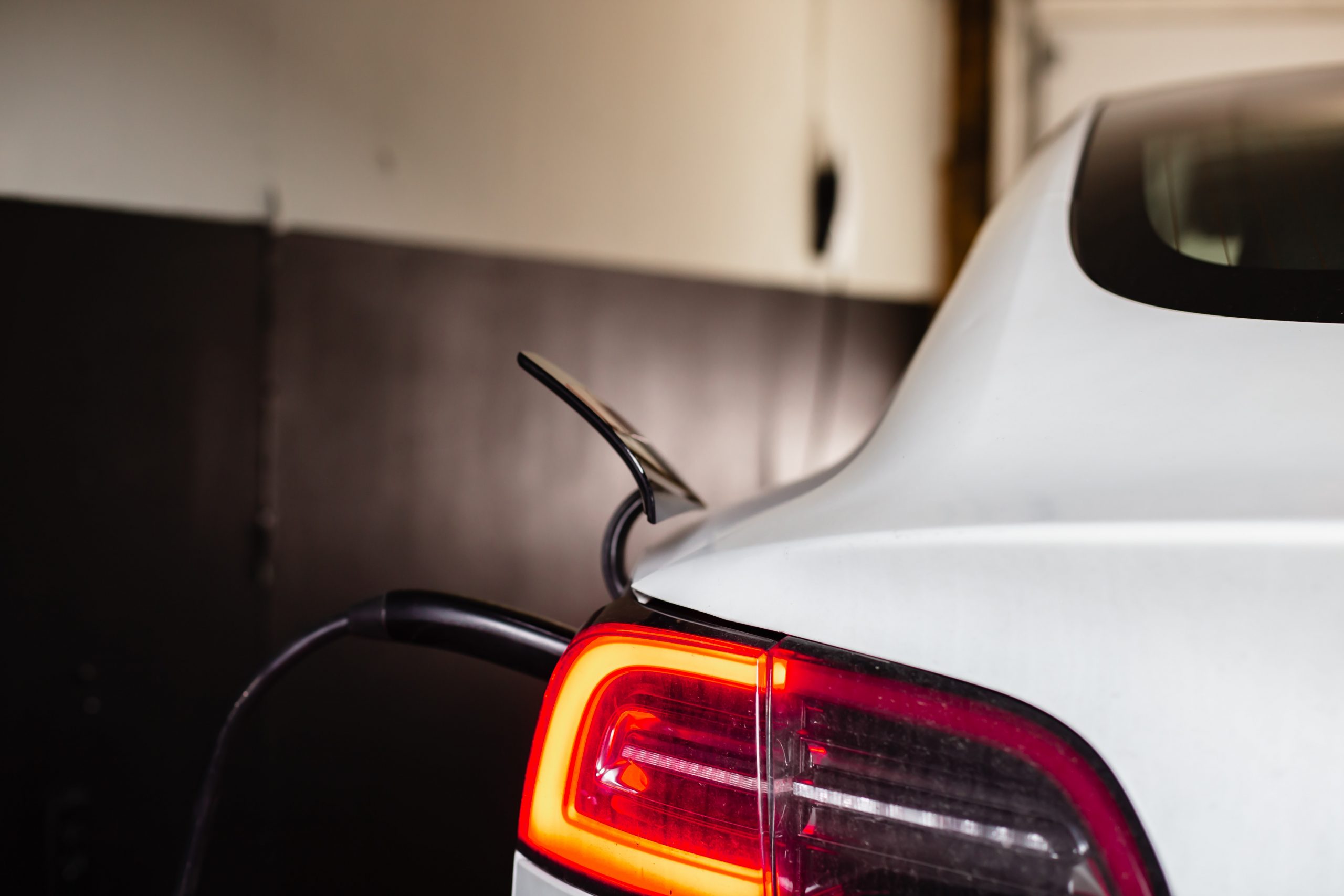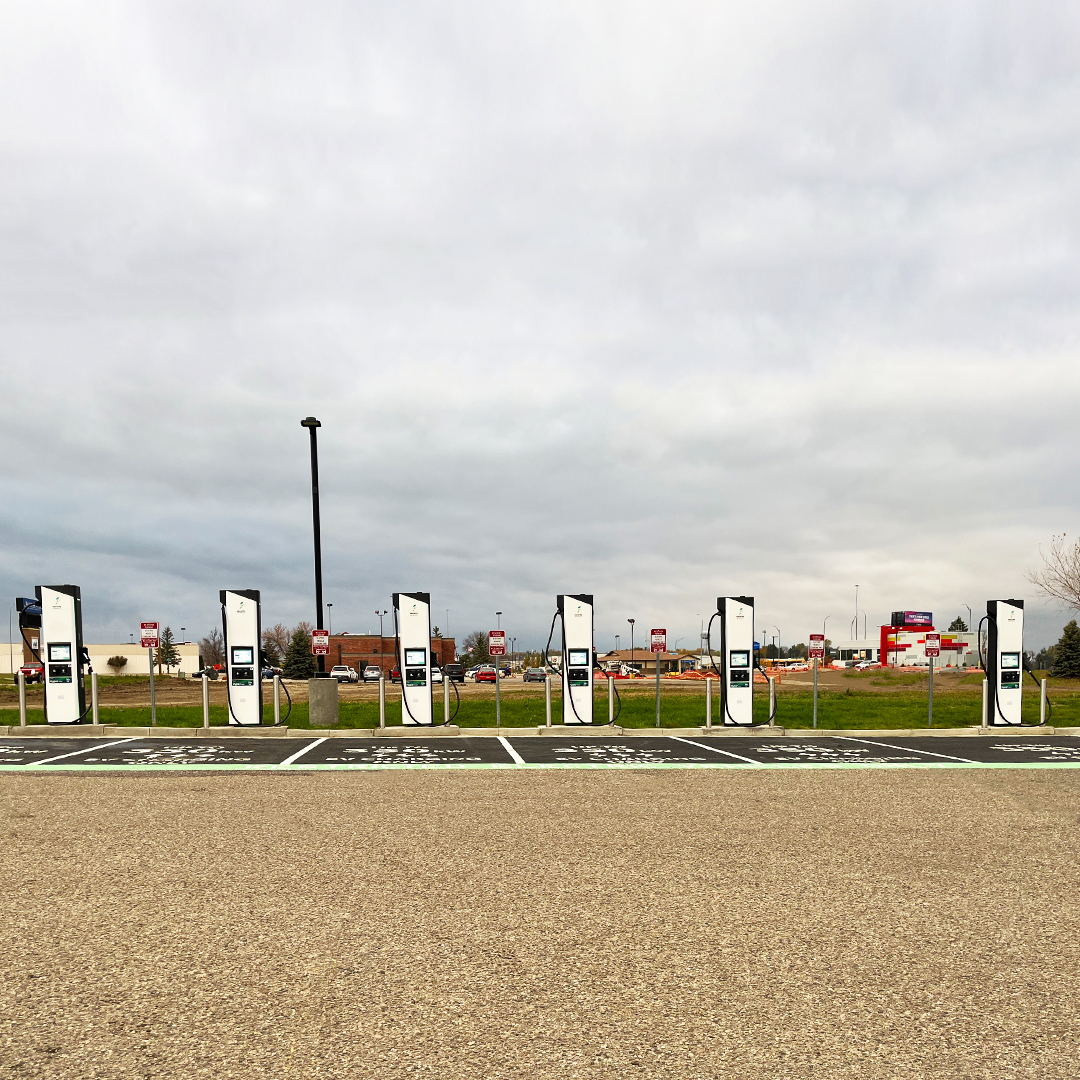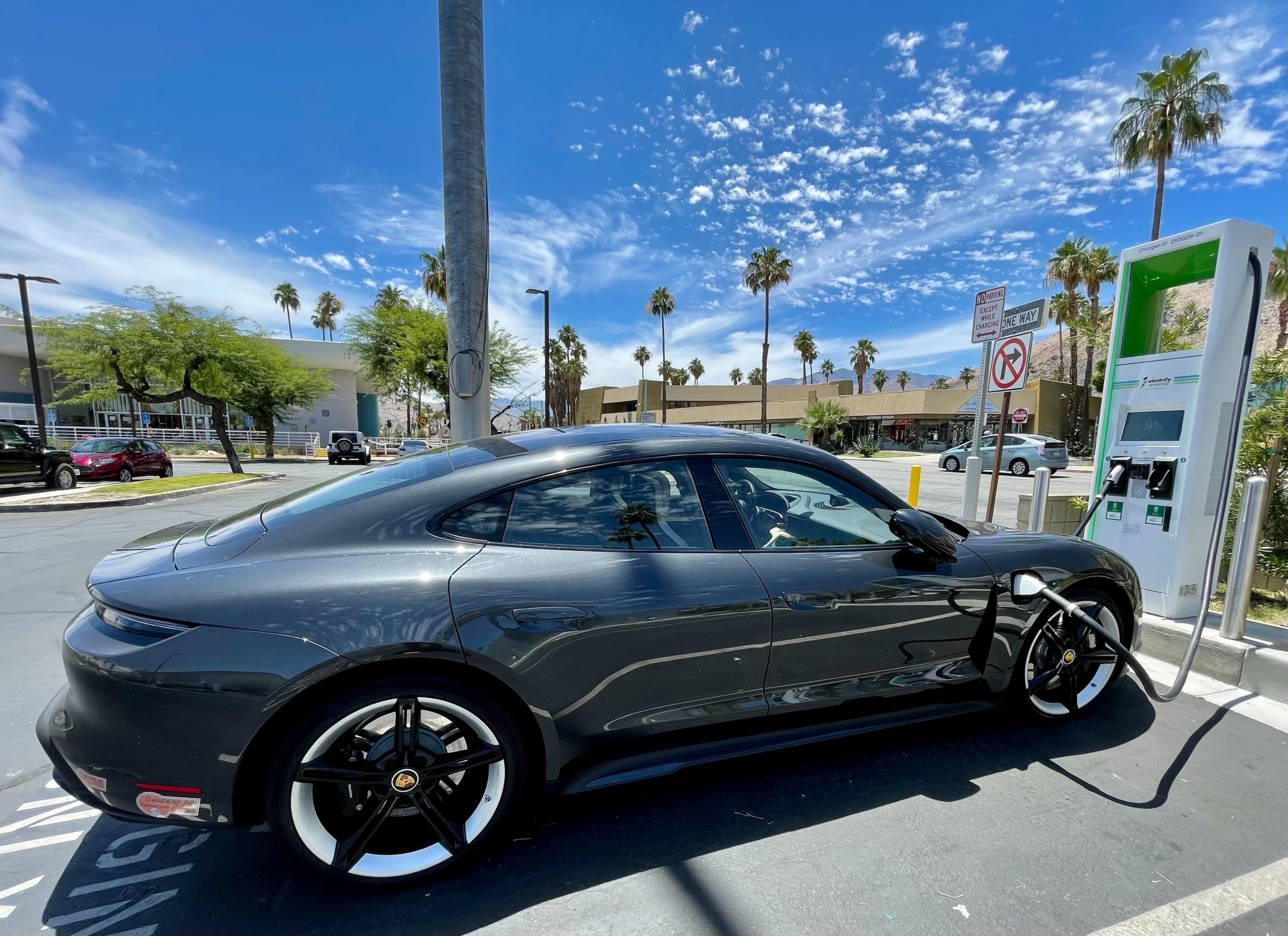With soaring fuel prices, people are switching to electric vehicles (EVs) to curb expenses. Sure, the low operating costs, reduced fuel prices, and, above all, the government incentives are a saving grace for many.
Yet, amidst the excitement of owning an EV, a pressing question arises, “What does it cost to charge an electric car?”
Electric vehicles are economical, but they still incur expenses and charging them is one.

Whether you intend to charge your vehicle at a public EV charging station or home, we’ll provide a comprehensive breakdown of the costs to ensure you’re well-informed on your eco-friendly journey.
What Does It Cost to Charge an Electric Car?
Around 88% of US citizens charge their electric vehicles at home rather than a public charging station, which adds to their overall electricity costs.
If you’re a part of the collective, consider looking at your electricity bill to estimate the costs. You’ll see the current kilowatt-hours (kWh) and how much you pay per kWh.
A kWh represents the energy required to operate a 1000-watt device for an hour.
The national average price of electricity is 11.89 per the Energy Information Administration (EIA) 2021 report.
A well-engineered smaller EV can cover a distance of around 4 miles with each kilowatt hour.
Therefore, if you drive your vehicle around 1000 miles per month, you’d require up to 250 kilowatt hours to charge it.
Considering the national average electricity price – 11.89 cents per kWh – you’d need to pay $29.72 monthly. Obviously this can vary location to location so make sure to do the math on any vehicle you are considering.
Charging at a Public EV Charging Station
Charging your EV at a public charging station is a whole different story. These companies invest megabucks in setting up their fast-charging tech.
As an EV owner, this only implies one thing – paying a higher fee. Typically these fees are still slightly less than buying gas to travel the same distance but the savings is much less.
If you still want a rough estimate, know that prices vary depending on the charging station and some vehicles come with free charging for a period of time.
For instance, Level 1 chargers take around 24 hours to charge your EV, depending on a number of factors.
Level 2 chargers typically offer between 20-45 miles of charge in an hour. These are the types of chargers most people install at home.
And finally, Level 3 charges, also termed DC fast chargers, charge your vehicle in 18-40 minutes. Since costs differ significantly, narrowing down the exact price can be challenging.

If we consider Electrify America (EA), a popular US charging network, their Level 2 charging is priced at $0.03 per minute.
However, most EA chargers charge a per kilowatt-hour rate, being fast chargers.
Besides, if you opt for a Pass + Member pricing plan, you’ll be offered a discount, but you must pay $4 monthly.
Factors Affecting the Cost of Charging an EV at Home
Over the long haul, charging your EV at home is relatively cheaper.
We’ll provide an overview of different factors that affect the cost of charging at home to help you understand the underlying charges better.
The EV’s Battery Size
It goes without saying that a larger EV battery size will cost more than a smaller one – just like you pay more while filling up a vehicle with a large gas tank.
Nonetheless, you can still pay less by charging your vehicle strategically.
For instance, maintaining the battery between 20%-80% reduces the overall charging expenses and boosts the battery’s lifespan – a win-win.
Electricity Source
Since you use electricity to charge your electric vehicle, it remains the most crucial factor affecting the overall costs.
Note that you have other electricity alternatives like a Green Power Plan (GPP), Community Solar, or a Community Choice Aggregation (CCA).
You’re likely to pay less if you’re subscribed to community solar. But again, your utility’s standard pricing might be less than GPP or CCA.
Therefore, consider comparing the prices before opting for a specific route. This guide might help you make a quick comparison.
On a side note, one of the best ways to reduce costs is to use a solar system. Yes, installing them might incur high charges, but they’re cost-effective in the long run.
Type of Charger
When you charge your electric vehicle’s battery, all energy isn’t stored inside the battery.
Instead, some of it is lost in the form of heat while other dissipates as the transmission loss.
As explained earlier, these chargers come in 3 levels. Simply put, the type of charger you use affects the overall energy. For instance, the higher the voltage, the lesser the energy loss.
Generally, Level 1 and Level 2 chargers convert Alternating Current (AC) into Direct Current (DC) that your vehicle’s battery stores and utilizes.
Naturally, this conversion leads to more energy loss because of the heat generated during the process.
Contrarily, Level 3 chargers provide DC electricity. This no conversion process implies no energy loss.
In fact, Level 3 chargers can provide an efficiency above 90%, which is comparatively higher than Level 1 and Level 2 chargers hitting 85% and sometimes even less (60%).
Time
The timing of charging your EV also impacts the total cost. That’s primarily because utilities often adjust their rates during a specific time of the day. These rate structures are called time-varying or time-of-use rates.
For instance, the cost might increase when electricity demand is high – consider an afternoon on a hot summer day.
Naturally, you’ll pay less when charging your EV at night when the electricity consumption and demand are relatively low.
Location
It’s no surprise that electricity costs vary depending on your location.
According to the latest data, Hawaii has the highest electricity rates, and North Dakota has the lowest.
It is worth noting that for residents in extreme climates – cold or hot – more energy will be lost during the charging process.
The battery requires additional energy to maintain an optimal temperature in harsh climate conditions.
This automatically reduces the charging efficiency and makes moderate climates better for electric vehicle charging.
Electric Car vs Gas-Powered Car Cost: A Comparison
Although electric vehicles have higher upfront costs than gas-powered ones, their fuel and maintenance costs are substantially less.

The US Office of Energy Efficiency and Renewable Energy mentions that the potential lifetime savings in fuel costs fall between $3,000 and $10,500, minus the installation and equipment charges.
If you want a more precise fuel price estimation, consider using the US Department of Energy vehicle cost calculator.
How Long Does It Take to Charge an Electric Car
How long it takes to charge an EV depends on your EV’s range, the current level of charging, and the amount of charge needed.
Generally, a Level 3 charger will take as little as 15-20 minutes. However, a Level 1 or 2 charger can take around 20-40 hours.
Quick Tips to Reduce the Charging Costs on Your EV
Reduced vehicle-related costs are one of the biggest perks of an EV.
Therefore, exploring a few strategies to minimize charging costs – and the overall vehicle ownership expense – will help you get the most out of your investment.
- Take advantage of the off-peak electricity rates by charging your vehicle during times when the demand – and rates – are lower. Generally, early morning and late night hours qualify as off-peak hours.
- Consider generating your own electricity by installing solar panels at home. They will help you reduce the expense, especially if you live in a sunlight-abundant area.
- Use websites and mobile apps to learn about the pricing structure of different public charging stations. This will help you opt for a station that offers competitive pricing.
The Takeaway
Since EVs hold a reputation for fewer vehicle-related expenses, EV owners often wonder, “What does it cost to charge an electric car?” to stay informed and maximize their savings.
Overall, charging at home is more budget-friendly due to fewer overhead costs, kind of like cooking at home saves you money than eating out.
Further, you can make a real difference in your electricity bill by charging your EV during off-peak hours.
So, while costs are involved, EVs are a smart, affordable, and convenient choice in the long run.
FAQs
Do Electric Cars Charge to 100 %?
Yes, electric cars can be charged to 100 %. However, a few EV owners prefer not to charge them at their full capacity and for good reasons. It helps them prolong the battery life since charging to full capacity is associated with faster battery degradation. This isn’t the case for all EV battery types and some manufactures cap the ability to protect the battery as well, so it takes a bit of research to know how to take the best care of your particular vehicle’s battery.
Why Charge EV to Only 80?
Most EV owners prefer charging an electric vehicle to only 80% for an extended battery life. Manufacturers often recommend keeping the battery’s charge between 20%-80%.
It helps reduce the stress of battery cells and slows down the degradation pPreview (opens in a new tab)rocess. Consider it as a part of the battery’s management technique to ensure its optimal performance.
Is It OK to Charge EV Every Day?
It is perfectly okay to charge an electric vehicle every day. They are designed to handle daily charging without any issues, thanks to their advanced battery management systems. However, avoiding charging unnecessarily is a good practice in general.
One long time piece of advice is ABC. Always be charging. Now that doesn’t mean charge to 100% all the time. It means to set your charge limit at a reasonable percent and when able it’s best to have your car plugged in so it can charge when it needs to.
Can You Sit In an EV While Charging?
Yes, you can sit in an EV while it’s charging. Modern EVs are designed with features to entertain you such as games, videos and other fun attributes to pass the time.
However, it is advisable to adhere to the manufacturer’s guidelines and exercise caution, especially in certain situations – such as extreme weather conditions.
More on EV Universe:
- Explore More EVs: Check out our comprehensive listings page for detailed information on top electric vehicles.
- Shop EV Parts: We’re more than just a source of information. Browse our extensive marketplace for a variety of EV parts and products.
- Insights & Updates: Stay updated in the world of electric vehicles with our insights section. Dive into our in-depth reviews, educational pieces, and the latest news.
- Find Your Perfect EV: Harness our EV Matchmaker tool to explore a diverse range of electric vehicles, filter by your preferences, and discover hidden gems that perfectly match your driving style and budget.



